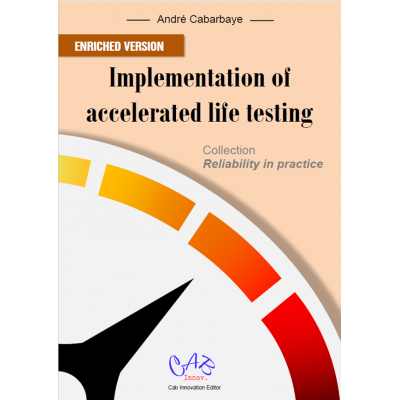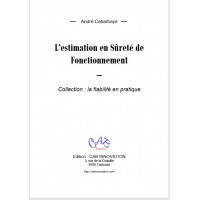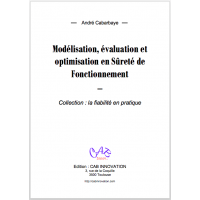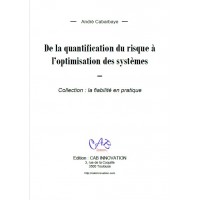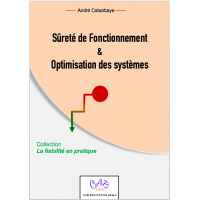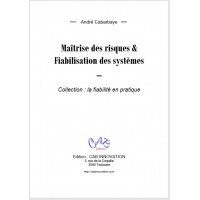Implementation of accelerated life testing
Disponibilité : En Stock
H.T : 61,61€
ISBN : 979-10-97287-07-8
Collection : Reliability in practice
Edition : CAB Innovation
This
educational book on the implementation of accelerated life testing
therefore explains its theoretical foundations and offers a practical
application guide which covers state of the art thinking on design
techniques and optimal planning of tests, the results of which also
constitute an input for health monitoring and predictive maintenance.
However,
existing standards (EN 62506, etc.) provide few precise recommendations
on their application (number of objects to be tested, the types and
conditions of stress to be applied, the theoretical models to be used,
the value of acceleration distribution parameters, etc.).
The design of tests and then their implementation in accordance with various strategies can be optimised to reduce their cost.
Tests
should, however, reveal the same failure or degradation phenomena under
accelerated and nominal conditions, and the acceleration distributions
allowing the transition from test results to operational performance
should be known or characterised by the tests themselves.
However,
any resulting complexity is an asset in the field of endurance or
reliability tests conducted to demonstrate the ability of a product to
perform its role. It can be used to reduce the duration of testing
and/or the number of test objects by increasing stress levels
(temperature, vibration, humidity, etc.).
Stress increases the risk of failure and should be taken into account in reliability models.
André Cabarbaye
A senior expert in operational safety, this book has been written by the CEO of Cab Innovation, a company which develops and markets optimisation and reliability software. The author of numerous scientific papers during his time at the French National Centre for Space Studies (CNES), he has set up operational safety groups in the Occitanie region of France and on LinkedIn.

